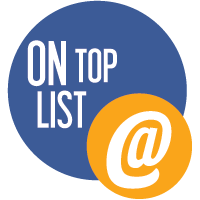Search engine optimization (SEO) supports a website being
found when a person is searching using a search engine.
Why SEO is important
A quick scan of some facts reveals why SEO is so important
for marketing effectiveness:
Being found and clicked on:
- 75% of users click on first page search results1 with an accumulative 90% clicking on results from the first three pages of returns2. In other words, the chances of your page being looked at rapidly declines after the main search engine results page (SERP).
- 87% of results clicked on were from the organic (non paid) portion of the search results – which are totally dependent on their ranking by ensuring they follow the optimization techniques.
- Top results are given credibility with people interpreting that leaders rise to the top “…users ascribe industry leadership to those brands within top results, and believe them to be leaders in their fields given their placement in the results” 2
1.
Source: How to make any content SEO-friendly by Anvil and Act-on
Writing to optimize being found
- Websites should be written for people, with a focus on being clear and user friendly – know your audience and write to them.
- Be more specific in writing your headings (use keyword phrases and not just generic terms).
- Create content that is of high value so people will share it and link to it.
- Commit to having fresh content – frequently update your content (stale content will get pushed down in the results).
- Use questions in subheadings (users often pose questions in search engines, so the more you align with what people might ask the higher the likelihood of returning results high on the page).
- Have at least 10 keyword phrases for your site, each phrase should have two or more keywords .
- Where feasible, keywords should be included in:
- Page titles, headings (h1,h2,h3), and anything that is being emphasized
- Only the first 65-75 characters of a title tag is displayed in the search results - this is also the general limit allowed by most social media sites, (long headings can be interpreted as spam by Google).
- Bolding or italicizing keywords (adding emphasis) can also aid search engines to know what words are important – but emphasis must be appropriate, i.e. done for a reason the reader understands (Note: italics can be hard to read).
- Keywords should be included within the first paragraph, and then within the content where it makes sense to include them; (have about 250 - 300 words per page) – this will enhance search engines’ efforts to index.
- URLs – should be readable and the shorter the better (115 characters max as shorter urls have higher click throughs). NOTE: by default, the main page heading is used as the URL for morneaushepell.com unless specified otherwise.
- Linking
- Link content, that is, create contextual links, ideally incorporating key workds when possible. (Never have a page of links as content and context is needed; no use of “Click here” as that is a wasted opportunity to have a contextual link that supports optimization).
- Navigation/menu items and anchors, should all contain keywords when possible.
- Cross link within your own site by indicating links to similar or related content.
- Add links to other credible, relevant sites.
- Request credible, relevant sites link back to you
- Social sharing can aid in improving search results.
- Flat sites do better as spiders view low level pages as less important; therefore, the hierarchy of content and information architecture is important. Note: morneaushepell.com is a flat site with maximum of two levels.
- Format
- Multiple formats can aid in improving search results (e.g. videos, articles, tools); note that in order to be effective there are format considerations (i.e., images need alternative text; video needs transcripts); note pdfs should not be locked in order to provide search engines with access to index that content.
- Content behind a form may not be indexed, therefore a summary of what is in it, using keywords, is important (e.g. whitepapers etc. should have a short description before the form).
Ways to test
- Try the 8 second test – have someone view the page for the first time for 8 seconds then ask them what they think the site is about – you may be surprised .
- Use your own search engine to test key words.
Keep in mind: Print vs. Online
Print and online are different mediums. People even see and
read them differently. Consider that:
- Reading is harder to do online since screens have flicker rates and varying resolutions so your eyes need a break more often than with print; and screens are read 25% slower than paper.
- 79% of readers scan pages so content online needs to be chunked into manageable bites with subheadings denoting different topics.
- Wording needs to be concise – you have seconds to get your point across and you’re competing with all types of distractions.
- People read print in a linear way – one page at a time; start to finish. People jump around web pages – following links according to their interest – they may come back to the original article or they may not.




